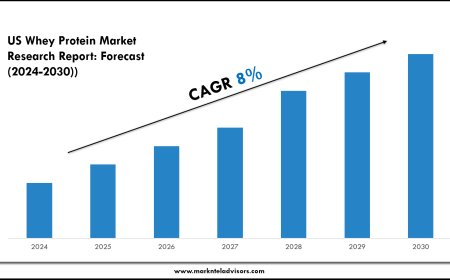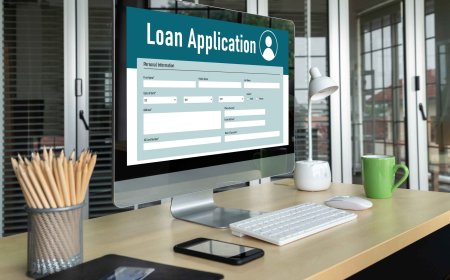Top 10 Cryptocurrency Exchanges to Use
Introduction The cryptocurrency landscape has evolved from a niche digital experiment into a global financial ecosystem worth trillions of dollars. With the rise of Bitcoin, Ethereum, and thousands of altcoins, the need for reliable, secure, and transparent cryptocurrency exchanges has never been greater. As new platforms emerge daily, users face a daunting challenge: identifying which exchanges a
Introduction
The cryptocurrency landscape has evolved from a niche digital experiment into a global financial ecosystem worth trillions of dollars. With the rise of Bitcoin, Ethereum, and thousands of altcoins, the need for reliable, secure, and transparent cryptocurrency exchanges has never been greater. As new platforms emerge daily, users face a daunting challenge: identifying which exchanges are truly trustworthy. Trust in this context is not merely about user interface or marketing claimsits about regulatory compliance, historical security records, transparent operations, and user protection mechanisms. This article presents the top 10 cryptocurrency exchanges you can trust in 2024, rigorously evaluated based on security protocols, liquidity, fee structures, jurisdictional compliance, and community reputation. Whether youre a beginner dipping your toes into digital assets or a seasoned trader managing large portfolios, choosing the right exchange is foundational to your financial safety and long-term success.
Why Trust Matters
In the world of cryptocurrency, trust is not a luxuryits a necessity. Unlike traditional banking systems, where institutions are backed by government insurance and regulatory oversight, crypto exchanges operate in a largely decentralized and often unregulated environment. This makes them prime targets for hackers, insider fraud, and operational failures. Since 2011, over $10 billion in cryptocurrency has been stolen through exchange hacks, insolvencies, and fraudulent activities. The collapse of Mt. Gox in 2014, the FTX implosion in 2022, and the TerraUSD depegging in 2023 serve as stark reminders that not all platforms are built to last. Trustworthy exchanges prioritize user assets above profits. They maintain cold storage for the majority of funds, undergo regular third-party audits, implement multi-signature wallets, and disclose their reserve ratios transparently. They also comply with anti-money laundering (AML) and know-your-customer (KYC) regulations, which, while sometimes seen as intrusive, act as vital safeguards against illicit activity. Furthermore, trust is reinforced by longevityexchanges that have survived multiple market cycles, including bear markets and regulatory crackdowns, demonstrate resilience and operational maturity. Choosing a platform based on trust reduces the risk of losing funds, ensures smoother transactions, and provides peace of mind in a volatile market.
Top 10 Cryptocurrency Exchanges to Use You Can Trust
1. Coinbase
Coinbase stands as one of the most established and regulated cryptocurrency exchanges in the world. Founded in 2012 and headquartered in San Francisco, it was the first U.S.-based crypto platform to go public, listing on the Nasdaq in 2021. Coinbase is licensed to operate in over 100 countries and complies with stringent U.S. financial regulations, including those enforced by the Financial Crimes Enforcement Network (FinCEN) and state-level money transmitter licenses. The exchange holds over 98% of its users assets in offline cold storage, with the remainder insured through third-party policies. It regularly publishes proof-of-reserves reports, verified by independent accounting firms, ensuring users that their holdings are fully backed. Coinbase supports more than 250 cryptocurrencies and offers a user-friendly interface suitable for both novices and professionals. Its Coinbase Pro platform provides advanced trading tools, including limit orders, stop-losses, and API access. The platform also features a secure wallet service, Coinbase Wallet, which allows users to retain full control of their private keys. With a strong track record of regulatory cooperation and zero major security breaches since 2015, Coinbase remains a benchmark for trust in the crypto industry.
2. Kraken
Kraken, founded in 2011 and based in San Francisco, is one of the oldest continuously operating cryptocurrency exchanges in existence. It has earned a reputation for its rigorous security standards and commitment to transparency. Kraken was the first U.S. exchange to receive a BitLicense from the New York State Department of Financial Services, and it complies with regulations across the U.S., Canada, the European Union, and the United Kingdom. The exchange maintains 95% of its digital assets in cold storage and employs advanced encryption, two-factor authentication, and IP whitelisting. Kraken underwent a full third-party audit in 2023, confirming that its reserve ratio exceeded 100%. It offers over 200 cryptocurrencies and supports trading in fiat currencies including USD, EUR, GBP, and CAD. Krakens advanced trading interface caters to institutional and retail traders alike, with features such as margin trading, staking, and futures contracts. Its Kraken Futures platform is regulated by the U.S. Commodity Futures Trading Commission (CFTC). The company has never suffered a major hack, and its transparency portal publicly discloses wallet addresses and asset holdings. Krakens long-standing reputation for integrity and its proactive approach to compliance make it one of the most trusted exchanges globally.
3. Binance
Binance, launched in 2017 by Changpeng Zhao, quickly grew to become the worlds largest cryptocurrency exchange by trading volume. Despite facing regulatory scrutiny in several jurisdictions, including the United States, the United Kingdom, and Japan, Binance has taken significant steps to improve its compliance posture. It now operates separate regional entities, including Binance.US, which complies with U.S. regulations and is registered as a Money Services Business with FinCEN. Binance maintains a Secure Asset Fund for Users (SAFU), a reserve fund created from 10% of all trading fees, designed to protect users in the event of a security breach. The exchange uses a multi-layered security infrastructure, including cold storage, biometric authentication, and real-time monitoring systems. Binance conducts quarterly proof-of-reserves audits using third-party firms, and its blockchain analytics team actively combats illicit activity. With support for over 350 cryptocurrencies and low trading fees, Binance remains the go-to platform for high-volume traders and DeFi enthusiasts. Its Binance Chain and BNB token ecosystem further enhance its utility. While its global operations have faced challenges, Binances scale, innovation, and commitment to reserve transparency have earned it a place among the most trusted exchanges for experienced users.
4. Bitstamp
Bitstamp, founded in 2011 in Slovenia, is one of the oldest cryptocurrency exchanges still operating today. It is regulated by the Luxembourg Financial Sector Supervision Commission (CSSF) and complies with EU-wide AML and KYC directives. Bitstamp holds all customer funds in segregated accounts and stores over 98% of assets in cold storage. The exchange has never been hacked since its inception, a remarkable feat given its longevity. Bitstamp was the first exchange to offer Bitcoin trading against the Euro and remains a preferred platform for European users due to its strong regulatory standing. It supports over 50 cryptocurrencies and allows trading in EUR, USD, and GBP. Bitstamps infrastructure is built on enterprise-grade security protocols, including hardware security modules (HSMs) and distributed denial-of-service (DDoS) protection. The company regularly publishes transparency reports and undergoes independent audits. Bitstamp also offers a professional trading terminal with advanced charting tools and API access. Its commitment to regulatory compliance, combined with a clean security history and transparent operations, solidifies its position as a trusted name in the industry.
5. Gemini
Gemini, founded in 2014 by the Winklevoss twins, is a New York-based exchange regulated by the New York State Department of Financial Services (NYDFS). It holds a BitLicense, making it one of the few crypto platforms legally authorized to operate in New York. Geminis entire business model is built on regulatory compliance and institutional-grade security. It stores 99% of its digital assets in cold storage, with all funds insured by a third-party policy covering theft and cybercrime. The exchange publishes monthly proof-of-reserves reports, audited by independent firms, confirming that customer deposits are fully backed. Gemini also operates its own blockchain, Gemini Blockchain, and offers a non-custodial wallet, Gemini Wallet, for users seeking full control. The platform supports over 100 cryptocurrencies and provides advanced trading features, including limit orders, stop-losses, and recurring buys. Gemini is known for its strict KYC procedures, which enhance account security and prevent fraud. Its educational initiatives and transparent governance have earned it widespread respect among institutional investors. With no major security incidents since its founding and consistent regulatory adherence, Gemini is a top choice for users prioritizing safety and compliance.
6. KuCoin
KuCoin, established in 2017 and headquartered in Seychelles, has grown into a globally recognized exchange with a strong emphasis on security and user autonomy. While not regulated by traditional financial authorities, KuCoin has implemented industry-leading security measures to compensate. It uses a multi-signature cold wallet system, with 95% of assets stored offline. The platform maintains a Security Fund, funded by 20% of trading fees, to cover potential losses. KuCoin underwent a full third-party audit in 2023, confirming its solvency and reserve integrity. The exchange supports over 700 cryptocurrencies, including many lesser-known altcoins, making it a favorite among traders seeking diversification. KuCoin offers staking, lending, futures trading, and a decentralized exchange (KuCoin Swap). Its user interface is intuitive, and it provides multilingual customer support. KuCoin has never suffered a major hack, and its security team actively monitors for suspicious activity. While its lack of centralized regulatory licensing may deter some users, its transparent reserve disclosures, robust security architecture, and long-term operational stability have earned it trust among a global user base.
7. Bybit
Bybit, founded in 2018, has rapidly become one of the most trusted platforms for derivatives and spot trading. Headquartered in Dubai, Bybit is regulated by the Dubai Virtual Assets Regulatory Authority (VARA) and complies with international AML standards. It holds 100% of user funds in cold storage and uses a multi-signature wallet system with geographically distributed key holders. Bybits insurance fund, funded by a percentage of trading fees, ensures that users are protected in the event of liquidation defaults. The exchange underwent an independent audit in 2023, verifying its reserve ratio and financial health. Bybit supports over 300 cryptocurrencies and offers advanced trading tools, including leverage up to 100x, stop-loss orders, and trailing stops. Its user interface is clean and responsive, optimized for both mobile and desktop use. Bybit also provides a non-custodial wallet and supports staking across multiple blockchains. Despite its focus on derivatives, Bybit maintains strong spot trading liquidity and has never experienced a security breach. Its transparent operations, regulatory alignment, and proactive risk management make it a trusted choice for traders seeking high-performance tools.
8. Crypto.com
Crypto.com, founded in 2016 and headquartered in Singapore, has built a reputation for combining strong security with innovative financial products. The platform is licensed in multiple jurisdictions, including the U.S., Canada, Australia, and Hong Kong. Crypto.com stores 98% of customer assets in cold storage and uses multi-signature wallets with hardware security modules. It maintains an insurance fund of $750 million to cover potential losses from theft or hacking. The exchange publishes quarterly proof-of-reserves reports, verified by independent auditors. Crypto.com supports over 250 cryptocurrencies and offers a wide range of services, including a crypto debit card, staking, lending, and a non-custodial wallet. Its mobile app is highly rated for usability and security features, including biometric login and real-time transaction alerts. Crypto.com has never suffered a major breach and actively invests in blockchain security research. Its partnership with major financial institutions and its commitment to regulatory compliance have helped it earn the trust of both retail and institutional users.
9. OKX
OKX, formerly OKEx, is a globally recognized exchange with operations in multiple regions, including the Middle East, Southeast Asia, and Europe. It is licensed by the Abu Dhabi Global Market (ADGM) and complies with international AML and KYC standards. OKX uses a multi-layered security system, including cold storage for 95% of assets, real-time risk monitoring, and distributed key management. The exchange maintains a Secure Asset Fund for Users (SAFU), similar to Binance, funded by trading fees to protect against unexpected losses. OKX underwent a comprehensive third-party audit in 2023, confirming its solvency and reserve coverage. It supports over 350 cryptocurrencies and offers advanced trading features, including spot, futures, options, and margin trading. OKX also provides a non-custodial wallet and staking services across multiple blockchains. The platform is known for its high liquidity and low fees, making it popular among professional traders. Despite past regulatory challenges, OKX has taken significant steps to improve compliance and transparency, earning renewed trust from its user base.
10. Independent Reserve
Independent Reserve, founded in 2013 and based in Australia, is one of the most trusted exchanges in the Asia-Pacific region. It is regulated by the Australian Transaction Reports and Analysis Centre (AUSTRAC) and holds an Australian Financial Services License (AFSL). Independent Reserve stores 98% of assets in cold storage and uses multi-signature wallets with geographically distributed keys. The exchange undergoes quarterly audits by independent firms, and its proof-of-reserves reports are publicly available. It supports over 60 cryptocurrencies and allows trading in AUD, USD, NZD, and EUR. Independent Reserve has never been hacked and maintains a transparent operational model, with all wallet addresses and balances published online. The platform is designed for security-first users, with features such as withdrawal whitelisting, two-factor authentication, and email notifications for all transactions. Its focus on compliance, transparency, and user protection makes it a preferred choice for Australian and New Zealand investors seeking a reliable, locally regulated platform.
Comparison Table
| Exchange | Founded | Headquarters | Regulatory Status | Cold Storage % | Proof-of-Reserves | Supported Cryptocurrencies | Key Security Feature | Best For |
|---|---|---|---|---|---|---|---|---|
| Coinbase | 2012 | United States | FinCEN, NYDFS, Multiple State Licenses | 98% | Quarterly, Public | 250+ | Insured cold storage | Beginners, U.S. Users |
| Kraken | 2011 | United States | FinCEN, BitLicense, EU Compliance | 95% | Annual, Public | 200+ | Third-party audit transparency | Advanced Traders, Security-Conscious Users |
| Binance | 2017 | Global (Binance.US in U.S.) | Regulated in UAE, EU, and Binance.US | 95% | Quarterly, Public | 350+ | SAFU Insurance Fund | High-Volume Traders, DeFi Users |
| Bitstamp | 2011 | Luxembourg | CSSF (EU Licensed) | 98% | Monthly, Public | 50+ | Zero breach history | European Users, Long-Term Holders |
| Gemini | 2014 | United States | BitLicense (NYDFS) | 99% | Monthly, Public | 100+ | Third-party insurance fund | Institutional Investors, Compliance-Focused Users |
| KuCoin | 2017 | Seychelles | Unregulated but transparent | 95% | Annual, Public | 700+ | Security Fund (20% of fees) | Altcoin Traders, Global Users |
| Bybit | 2018 | Dubai | VARA Licensed | 100% | Annual, Public | 300+ | Insurance fund for liquidations | Derivatives Traders, Advanced Users |
| Crypto.com | 2016 | Singapore | Regulated in U.S., Canada, Australia | 98% | Quarterly, Public | 250+ | $750M insurance fund | Users Seeking Ecosystem Features |
| OKX | 2017 | Global (ADGM Licensed) | ADGM, AML Compliant | 95% | Annual, Public | 350+ | SAFU Insurance Fund | Professional Traders, Global Market Access |
| Independent Reserve | 2013 | Australia | AUSTRAC, AFSL | 98% | Quarterly, Public | 60+ | Public wallet transparency | Australian/NZ Users, Trust-First Investors |
FAQs
What makes a cryptocurrency exchange trustworthy?
A trustworthy cryptocurrency exchange demonstrates regulatory compliance, maintains high security standards, provides transparent proof-of-reserves, stores the majority of assets in cold storage, undergoes regular third-party audits, and has a history of zero major security breaches. It also offers clear terms of service, protects user funds with insurance, and prioritizes user privacy without compromising compliance.
Can I trust exchanges that are not regulated by governments?
Yes, some unregulated exchanges can still be trustworthy if they implement industry-leading security practices, publish transparent proof-of-reserves, and maintain a long track record of operational integrity. However, regulation provides an additional layer of accountability and recourse in case of disputes. Users should weigh the trade-offs between access to global markets and the protection offered by licensed platforms.
What is proof-of-reserves, and why is it important?
Proof-of-reserves is a cryptographic verification process that confirms an exchange holds sufficient assets to cover all user deposits. It typically involves a third-party auditor comparing the exchanges on-chain wallet balances with its liabilities. This prevents fractional reserve practices and ensures users funds are not being reused or lent out without consent. Proof-of-reserves is a critical indicator of an exchanges solvency and trustworthiness.
How do I know if an exchange has been hacked in the past?
Reputable exchanges publish their security history transparently. You can verify past incidents by reviewing independent news sources, blockchain analytics platforms like Chainalysis or Elliptic, and the exchanges own transparency portal. Exchanges that have been hacked but responded with full compensation, improved security, and public disclosure are often more trustworthy than those that conceal breaches.
Should I use a centralized or decentralized exchange for maximum trust?
Centralized exchanges (CEXs) offer higher liquidity, faster transactions, and better customer support, but require users to trust the platform with custody. Decentralized exchanges (DEXs) give users full control over assets but require technical knowledge and offer limited recourse if errors occur. For most users, a trusted centralized exchange with strong security and transparency is the optimal balance between convenience and safety.
Are all exchanges that offer staking and lending safe?
No. Staking and lending services involve lending your assets to the exchange or third parties, which increases counterparty risk. Even reputable exchanges can fail if these services are poorly managed. Always check whether the exchange segregates staking/lending funds from operational reserves and whether these activities are covered by insurance. Avoid platforms that promise unrealistically high yields, as they often indicate risky or unsustainable practices.
How often should I check an exchanges proof-of-reserves report?
Its advisable to review proof-of-reserves reports at least quarterly, especially if you hold significant assets. Some exchanges, like Coinbase and Gemini, publish monthly reportsthese offer greater reassurance. If an exchange stops publishing or delays reports, it may be a red flag requiring further investigation.
What should I do if an exchange I use stops publishing transparency reports?
If an exchange ceases publishing proof-of-reserves or audit reports, consider withdrawing your funds to a personal wallet or transferring them to a more transparent platform. Lack of transparency is often an early warning sign of financial instability or regulatory trouble. Do not wait for a crisisact proactively to protect your assets.
Is it safe to keep large amounts of cryptocurrency on an exchange?
It is generally not recommended to keep large amounts of cryptocurrency on any exchange, even trusted ones. Exchanges are online targets and can be compromised. For long-term holding, transfer assets to a non-custodial hardware wallet. Use exchanges only for active trading, and withdraw the majority of holdings to cold storage.
Which exchange is best for beginners?
Coinbase and Gemini are the best options for beginners due to their intuitive interfaces, educational resources, strong regulatory compliance, and robust security. Both platforms simplify buying, selling, and storing cryptocurrency while minimizing technical complexity.
Conclusion
Selecting a trustworthy cryptocurrency exchange is one of the most critical decisions you will make in your digital asset journey. The platforms listed hereCoinbase, Kraken, Binance, Bitstamp, Gemini, KuCoin, Bybit, Crypto.com, OKX, and Independent Reservehave been vetted for their security infrastructure, regulatory adherence, transparency practices, and operational history. Each has demonstrated a commitment to safeguarding user assets through cold storage, third-party audits, insurance mechanisms, and public disclosure. While no exchange is entirely immune to risk, these ten have proven resilience across market cycles and regulatory challenges. Trust is earned over time, not advertised in slogans. Prioritize platforms that publish proof-of-reserves, avoid those that promise unrealistic returns, and always retain control of your private keys for long-term holdings. As the crypto industry matures, the divide between trustworthy institutions and speculative platforms will only widen. By choosing one of these top 10 exchanges, you align yourself with the most reliable, transparent, and secure foundations in the digital economy. Stay informed, stay cautious, and let trust guide your decisions.


























